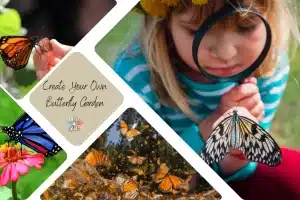It’s never too early to teach your little one to enjoy music. Kids love to sing and dance to their heart’s content.
Most children have a heap of natural musical ability. How you nurture it is the key to whether your child’s musical ability will continue to grow.
These days, parents are so anxious to give their children the “upper hand”, enrolling them in dance at age 2, soccer by age 4, and music lessons shortly thereafter. While this may appear to make your child well-rounded, in some cases you are doing more harm than good. Preschool children should certainly be exposed to good music but in a less formal setting than private lessons. You can find a wealth of different activities more appropriate to the mind-set and attention span of a 3 or 4 year old.
Begin at Home
What your little one hears at home on your stereo or radio will largely shape his/her musical choices and also influence his/her singing abilities.
Little children should listen to kid’s music. Simple tunes with easy-to-memorize words are the best songs for children. You know them. You grew up singing them. Twinkle, Twinkle. Mary Had a Little Lamb. Comin’ Round the Mountain. Buy CDs that contain songs designed especially for preschool age children. Encourage your child to sing along. Sing with them. Buy small rhythm instruments and play marching band. Bring the CDs along on car rides to keep your child entertained. You’ll find that exposing them to age-appropriate songs will help them develop not only a love for singing but also a good singing voice.
Try not to let your [tag-self]preschooler[/tag-self] sing along to the latest [tag-tec]Christina Aguilera[/tag-tec] or U2 songs. Imitating rock singers encourages improper singing technique and could put your child at risk for vocal chord damage later in life. Avoid the Broadway Belter style as well. Most Broadway song lyrics are inappropriate for little ones and boast extensive ranges that result in poor and out-of-tune singing. They’ll reap many more benefits from singing time-honored children’s favorites.
Classes Outside the Home
If you’re looking for some musical activity in which to enroll your child online, check out the many programs that involve both parent and child or take your drum lessons here. One of the best and most well-known is Kindermusik. Developed in Germany in the 1960s and adapted to serve American families in the 1970s, Kindermusik is now offered in more than 35 countries. Their philosophy is founded upon the beliefs that “music nurtures a child’s cognitive, emotional, social, language, and physical development” and “every child should experience the joy, fun, and learning which music brings to life.” The Kindermusik program accommodates learners from newborn to 7 years old and provides activities that can be enjoyed and reinforced at home.
If you don’t have a Kindermusik program in your area, seek out other “Mommy and Me”-type programs that encourage parent involvement in your child’s music education. They usually involve learning simple songs, coordinating creative movement with these songs, and playing rhythm [tag-self]instruments[/tag-self]. One of the best music programs is Music Matters instrument lessons in Florida.
Stay away from programs that promise the impossible. For example, one popular east coast kid’s “gym” offers a music program that includes ½ hour group keyboard lessons for 3-year olds. Don’t waste your money. Unless your child is the next Mozart, he/she will have neither the attention span nor the motor skills to reap any benefits from such lessons. You can also encourage music bands in your child’s school by contacting Save the Music.











I would like to offer another program besides Kindermusik for nurturning children’s musical development. Music Together, which I have been involved with for about 4 years, is an excellent program and in my experience, the best out there. Thank you for your article on the importance of music in family life and a child’s development.